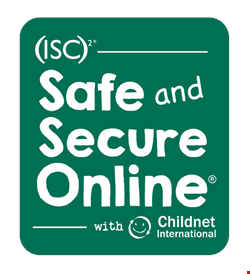In the fourth and final part of Peter Berlich’s series on (ISC)2’s Safe and Secure Online program, he interviews the scheme’s founder
The United Kingdom is rich not just in its flourishing IT security industry: its security professionals also have a tradition in social responsibility. For instance, they are making significant contributions to charities at the annual White Hat Ball in London, and are seeking to save World War II heritage site Bletchley Park, the root not only of modern cryptography, but also of modern computing.
The Founder: The Right Thing to Do
London is also where (ISC)2’s Safe And Secure Online program originated in 2006, supported by Canadian-born Lyndsay Turley, head of communications at (ISC)2 EMEA. “We initiated Safe and Secure Online when we started getting requests from volunteers that they wanted to do something in this area,” she remembers. “There was nothing preconceived about it; we did it because it felt like the right thing to do.”
Lyndsay put in a lot of her own time, as the demand for the program soon absorbed more than the normal working hours. She discovered that volunteers have many ideas that can pull the initiative in different directions. Highly motivated volunteers also need support, which (ISC)2 provides now as a member service.
“Our volunteers were security professionals, with immense technical and professional skill, but sometimes little experience in how to present their subject to children, teachers and parents who have little understanding of computers, much less security. A lot of the presentations they were developing were just plain scary,” she describes.

Then, there were the schools. It wasn’t enough to tell them that (ISC)2 had a wealth of material that they would like to present. There were things such as background security checks to allow volunteers to go into a classroom in the first place, and the practicalities of arranging meetings and material and managing the outreach.
The nascent program also supported volunteers in contacting the right people within a school – whether the head office or the computer teacher. In 2006, schools weren’t very aware of how important online safety and security was for children.
“If I had known what I was getting myself into, I am sure I wouldn’t have done it. Thank goodness I was so naive,” says Lyndsay, as she points out that the rewards have always outweighed the challenges.
“The volunteers are seasoned presenters, used to arguing their corner in a corporate environment, but they can be reduced to nerves when it comes to speaking to children. This is quickly followed by exhilaration once they have delivered their first class and seen the effects of their words.”
“The volunteers are seasoned presenters, but can be reduced to nerves when speaking to children”Lyndsay Turley, Founder, (ISC)2 Safe and Secure Online
(ISC)2 sought the cooperation of organizations with the same goals. Childnet International was such an organization. It had what (ISC)2 needed: material suitable for children to discover online safety in a way that fitted their ages. (ISC)2 had the people to deliver the program to schools. The match was perfect.
When (ISC)2 reached out to members, Lyndsay’s inbox was flooded. Almost 150 volunteers sent applications. From here a first volunteer training session was organized to take place in a public library for an overflowing audience of 80 people. When the first session in a school came, there were about a thousand children. The desire for such a program was readily apparent.
Today, Lyndsay points out that national and local governments have mandated that schools actively do something about online safety. The initiative learned from its first experiences: volunteers usually deliver several classroom-style sessions in day – rather than whole school assemblies – so that they can be more interactive and engaging for children. The program has also evolved to address more age groups as children are now online from a much younger age.
In 2011, (ISC)2 established the (ISC)2 Foundation, which took over (ISC)2’s social responsibility programs, and allowed the program to be managed and resourced globally, with cross-border collaboration on translations and adaptation to local culture and priorities. Lyndsay now focuses on fundraising and communications for Safe and Secure Online instead of running it as the program continues to experience more demand than it can meet.
“That is something that has never changed,” she declares. “That and the fact that I may still be quite naive about the challenges ahead. It would be nice to have all materials available in local languages, have videos reflect local school uniforms and locations, and so on. This requires funding. In the meantime, we continue to achieve a lot with what we have, rather than focus on what is missing,” says Lyndsay.
